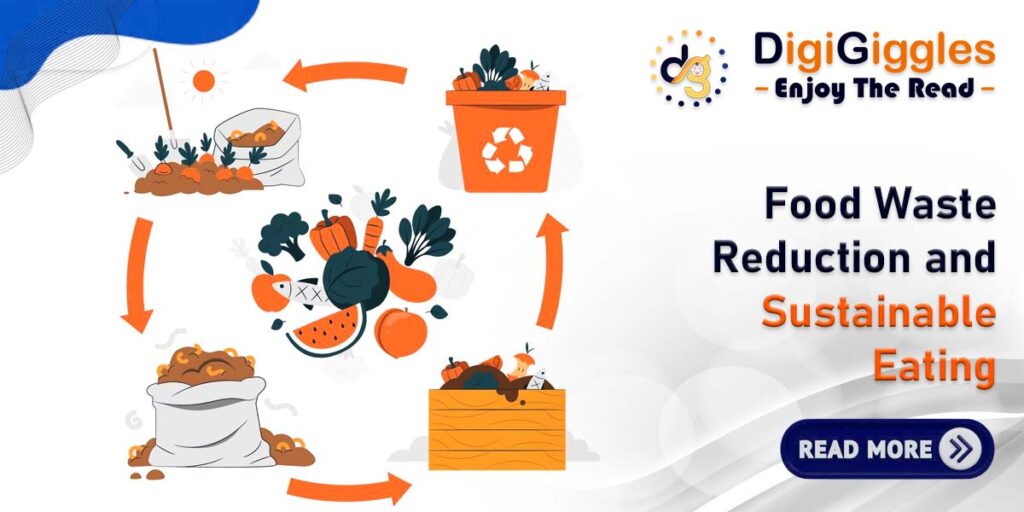
A Recipe for a Greener India
India is a land of diverse cultures, cuisines, and traditions, where food holds a special place in our hearts. However, in the midst of our rich culinary heritage, there’s a silent problem that needs our attention – food waste. It’s a global concern with economic, social, and environmental implications, and in India, it’s no different. To tackle this issue and promote sustainable living, it’s essential to understand the problem, its effects, and the proposed solutions, tailor-made for India.
The Food Waste Conundrum in India
Food waste occurs at various stages, from farm to plate. In India, it’s vital to differentiate between “food loss” and “food waste.” Food loss occurs before food reaches the consumer, often due to issues during production, storage, processing, and distribution. “Food waste” refers to food that is fit for consumption but is consciously discarded during retail or consumption phases.
The scale of the problem is staggering, with a large percentage of India’s food going to waste every year. While precise statistics can be challenging to obtain, a significant portion of our food production is lost to food waste.
Consequences of Food Waste in India
The consequences of food waste in India are significant and multi-faceted:
- Economic Impact: India’s agriculture sector, the backbone of our economy, faces losses due to food waste. This affects farmers’ incomes, pushing many into distress.
- Food Insecurity: India still grapples with food security issues. Food waste worsens this situation, as we fail to distribute resources equitably.
- Environmental Toll: Decomposing food waste emits methane, a potent greenhouse gas that contributes to climate change. This harms our environment and contributes to global warming.
- Social Responsibility: India’s cultural values emphasize not wasting food. Food waste contradicts these values, leading to a loss of our cultural heritage.
Benefits of Reducing Food Waste in India
Reducing food waste in India brings with it a host of benefits:
- Economic Prosperity: Efficient food handling, preparation, and storage can reduce labor costs, thus benefiting the economy.
- Reduced Food Prices: Lower food wastage ensures that only as much food is purchased as needed, which can potentially lower food prices.
- Environmental Conservation: Reducing food waste in India helps conserve resources, preventing pollution involved in the growing, manufacturing, transporting, and selling of food.
- Social Welfare: By donating surplus, untouched, and safe food to those in need, India can strengthen community bonds and help those less fortunate.
Proposed Solutions to Tackle Food Waste in India
In India, the problem of food waste requires a comprehensive approach:
- Community Awareness: Education and awareness campaigns can sensitize people to the issue of food waste. Teaching individuals about how to identify when food is no longer safe to eat, how to cook and store food properly, and how to compost can be instrumental.
- Policy Interventions: The Indian government can play a significant role in curbing food waste. Implementing tax credits for farmers who donate excess produce to local food banks can encourage donations and lessen food waste.
- Innovative Practices: Businesses such as restaurants, grocery stores, and institutional food services can evaluate the extent of their food waste and adopt best practices. Supermarkets can sell slightly damaged or nearly expired produce at discounted prices, and restaurants can offer smaller portions to reduce waste.
- Farming Practices: Indian farms can evaluate food losses during processing, distribution, and storage and adopt best practices. They can also consider selling fresh but unmarketable produce (due to appearance) to food banks at a reduced rate.
- Composting Initiatives: Community-level composting initiatives can help manage food waste efficiently. This organic matter can then be used to fertilize soil.
Conclusion: A Greener India!
Reducing food waste and embracing sustainable eating practices are essential steps for a greener and more prosperous India. By recognizing the problem, understanding its effects, and implementing proposed solutions tailored to our nation, we can collectively contribute to a more sustainable and eco-friendly India. Together, we can make a significant impact on food waste reduction and promote responsible consumption and production, all while preserving our cultural values and traditions.